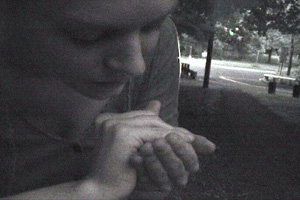 UK-based distributor Salvation Films have just unveiled two new-to-DVD releases on their Redemption USA line: Daughter of Darkness> (1948) and Burke and Hare (1972). While both share a debt to Val Lewton's less-is-more B-horror productions (the former to Cat People [1942] and the latter to The Body Snatcher [1945]), neither is merely imitative. Instead, they diverge from their forerunners in distinctive, and often eccentric, ways, culminating in works that at once pay tribute to their roots but also stand apart.
UK-based distributor Salvation Films have just unveiled two new-to-DVD releases on their Redemption USA line: Daughter of Darkness> (1948) and Burke and Hare (1972). While both share a debt to Val Lewton's less-is-more B-horror productions (the former to Cat People [1942] and the latter to The Body Snatcher [1945]), neither is merely imitative. Instead, they diverge from their forerunners in distinctive, and often eccentric, ways, culminating in works that at once pay tribute to their roots but also stand apart.Read my full reviews here at The L Magazine.










